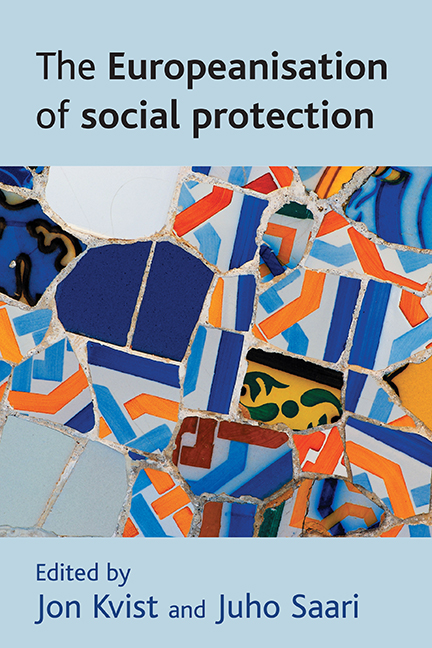Book contents
- Frontmatter
- Contents
- List of tables and figures
- Foreword: The European Union’s evolving social policy and national models – seeking a new balance
- Acknowledgements
- List of abbreviations
- List of contributors
- one European Union developments and national social protection
- two Germany: moving towards Europe but putting national autonomy first
- three The United Kingdom: more an economic than a social European
- four France: defending our model
- five Italy: between indifference, exploitation and the construction of a national interest
- six Poland: redefining social policies
- seven Spain: starting from periphery, becoming centre
- eight The Czech Republic: tradition compatible with modernisation?
- nine Finland: towards more proactive policies
- ten The Netherlands: social and economic normalisation in an era of European Union controversy
- eleven Denmark: from foot dragging to pace setting in European Union social policy
- twelve Greece: the quest for national welfare expansion through more social Europe
- thirteen The Europeanisation of social protection: domestic impacts and national responses
- fourteen Seeking a new balance
- References
- Index
twelve - Greece: the quest for national welfare expansion through more social Europe
Published online by Cambridge University Press: 15 September 2022
- Frontmatter
- Contents
- List of tables and figures
- Foreword: The European Union’s evolving social policy and national models – seeking a new balance
- Acknowledgements
- List of abbreviations
- List of contributors
- one European Union developments and national social protection
- two Germany: moving towards Europe but putting national autonomy first
- three The United Kingdom: more an economic than a social European
- four France: defending our model
- five Italy: between indifference, exploitation and the construction of a national interest
- six Poland: redefining social policies
- seven Spain: starting from periphery, becoming centre
- eight The Czech Republic: tradition compatible with modernisation?
- nine Finland: towards more proactive policies
- ten The Netherlands: social and economic normalisation in an era of European Union controversy
- eleven Denmark: from foot dragging to pace setting in European Union social policy
- twelve Greece: the quest for national welfare expansion through more social Europe
- thirteen The Europeanisation of social protection: domestic impacts and national responses
- fourteen Seeking a new balance
- References
- Index
Summary
This chapter aims to analyse and explain Greece's official response to the European Union's (EU’s) evolving social policy. Understanding this response entails considering four important factors influencing the overall Greek attitude towards the European integration project: the country's economic underdevelopment in relation to other EU countries; the late and inadequate development of social structures and the welfare state; the wide consensus among the major political parties on European integration, based on the predominance of political criteria; and the underdevelopment of civil society and the ineffectiveness of public administration.
The first two factors significantly influence Greece's goals towards European integration: the country's principal priority is a catch-up effort with other Member States in terms of salaries, incomes and social protection levels. Additionally, the underdevelopment of the welfare state further enhances the demand for welfare state expansion, while constraining the efforts for rationalisation and adjustment (as evidenced in mature European welfare states). Therefore, Greece perceives the aspiration for a European social policy, either explicitly as in the past or implicitly as in the present, as a harmonisation and convergence project. This strategy – pursued, albeit in varying degrees, over the past two decades – has been strengthened by the common strategic approach of the three major political parties (PASOK, ND and Synaspismos) towards European integration and EU social policy in particular. Finally, the state-centred society and the bad public administration significantly constrain the economic and social modernisation processes, toughen problem solving, restrict initiatives and negatively affect policy effectiveness overall.
The European social model versus the Greek model
In contrast to most Member States, whose citizens are proud of their own welfare reality, Greece has not developed a distinct type of welfare state. Until recently, the country lacked adequate state-supported social structures and social protection. Social protection expenditure was low compared to the EU average, focusing almost exclusively on a Bismarckian-type pension system with a corporatist base, operating on a clientelistic basis. Social services were inadequate, while the transfer of resources was limited. Social needs and risks were covered to a great extent by the family.
The Socialists, in power from 1981 to 2004 (with a brief interruption from 1989 to 1993), inaugurated an era of social modernisation.
- Type
- Chapter
- Information
- The Europeanisation of Social Protection , pp. 211 - 228Publisher: Bristol University PressPrint publication year: 2007
- 1
- Cited by

